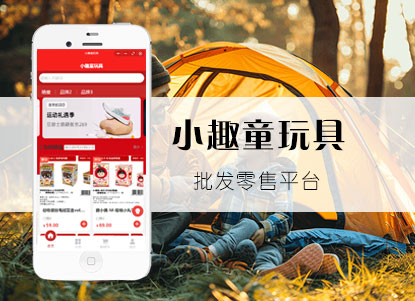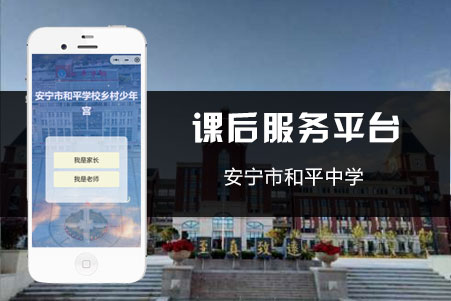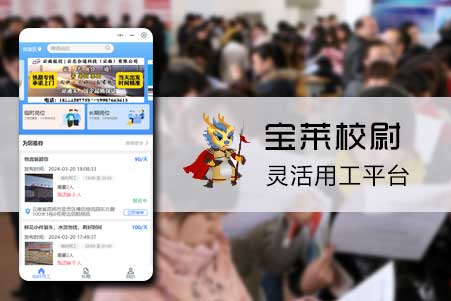Android学习笔记十四.深入理解fragment(二)之《图书详
发表时间:2020-10-19
发布人:葵宇科技
浏览次数:40
深刻懂得fragment(二)
之《图书详情》拭魅战
经由过程上一篇博文《深刻懂得fragment一》,我们进修了Android-Fragment的核心常识点。如今在此基本上,应用Fragment技巧开辟一款实用于大年夜屏幕手机/平板的查找图书详情的应用软件。该项目重要在于两方面,一是Activity、Fragment的源码实现;二是,构造界面资本文件的实现。
[img]http://img.blog.csdn.net/20150104174910282?watermark/2/text/aHR0cDovL2Jsb2cuY3Nkbi5uZXQvdTAxMjYzNzUwMQ==/font/5a6L5L2T/fontsize/400/fill/I0JBQkFCMA==/dissolve/70/gravity/Center
1.res/../BookListFragment.java:
自定义类,持续于ListFragment,无需实现OnCreateView()办法,用于Activity右边显示列表fragment。
(1)定义Callbacks接口:定义一个回调接口Callback,用于实现该Fragment与它地点的Activity交互;
(2)实现onCreate(Bundle savedInstanceState)办法:经由过程Adapter所供给的多个列表项,设置Fragment列表显示的列表项;
(3)实现onAttach(Activity activity)办法:将Fragment添加并显示到Acitvity中,并将传入的activity对象强迫类型转化为 Callbacks接口对象,以便调用接口公共办法onItemSelected(Integer id)响应用户单击的某列表项;
(4)实现ListFragment的onListItemClick(ListView l, View v, int position, long id)办法:
当用户点击Acitivity中的某项列表时,onListItemClick办法被激发。在这个办法中调用接口的onItemSelected来竽暌闺activity共享事宜。onItemSelected()传入的参数id是列表的被选中的行ID,另一个fragment(B)( BookDetailFragment )用这个ID来大年夜法度榜样的ContentProvider中取得标题标内容。
package com.example.android_fragment_1;
import android.app.Activity;
import android.app.ListFragment;
import android.os.Bundle;
import android.view.View;
import android.widget.ArrayAdapter;
import android.widget.ListView;
public class BookListFragment extends ListFragment {
//1.定义一个回调接口Callback,用于实现该Fragment与它地点的Activity交互(留意:该接口的实现须要在Activit中)
private Callbacks mCallbacks; //Callbacks接口对象
public interface Callbacks
{
public void onItemSelected(Integer id); //参数为Map集合的键
}
//2.onCreate办法中为该ListFragment设置Adapter,让该ListFragment显示该Adapter所供给的多个列表项
@Override
public void onCreate(Bundle savedInstanceState) {
// TODO Auto-generated method stub
super.onCreate(savedInstanceState);
setListAdapter(new ArrayAdapter<BookContent.Book>(getActivity(),//
android.R.layout.simple_list_item_activated_1,
android.R.id.text1,
BookContent.ITEMS)); //
}
//3.调用该办法将Fragment添加并显示到Acitvity中
@Override
public void onAttach(Activity activity) {
// TODO Auto-generated method stub
super.onAttach(activity);
//a.如不雅Activity中没有实现Callbacks接口,抛出异常
if(!(activity instanceof Callbacks))
{
throw new IllegalStateException("异常:BookListFragment地点的Activity必须实现Callback接口!");
}
//把该Activity当成Callbacks对象(就是这一句导致出现NullPointerException缺点)
mCallbacks=(Callbacks)activity;
}
//4.当该Fragment大年夜他所属的Acitivity中被删除时,调用该办法
@Override
public void onDetach() {
super.onDetach();
mCallbacks=null; //将mCallbacks赋值为null
}
//5.当用户单击某列表项时激发该回调办法
@Override
public void onListItemClick(ListView l, View v, int position, long id) {
super.onListItemClick(l, v, position, id);
mCallbacks.onItemSelected(BookContent.ITEMS.get(position).id);//激发mCallbacks接口的onItemSelected办法
}
public void setActivateOnItemClick(boolean activateOnItemClick) {
getListView().setChoiceMode(activateOnItemClick ? ListView.CHOICE_MODE_SINGLE:ListView.CHOICE_MODE_NONE);
}
}
2.res/../ BookDetailFragment.java:
onItemSelected()传入的参数id是列表的被选中的行ID, BookDetailFragment 用这个ID来大年夜法度榜样的ContentProvider中取得标题标内容。
(1)实现onCreate(Bundle savedInstanceState)办法:
获取启动该Fragment时传入的ITEM_ID参数并根据该ID获取BookContent的ITEM_MAP中的图手札息
(2)实现onCreateView(LayoutInflater inflater, ViewGroup container, Bundle savedInstanceState)办法:
a.为图书详情Fragment加载一个界面构造文件,为两个文本框;
b.根据传入的参数ID来更新View容器,使文本框显示不合的内容;
package com.example.android_fragment_1;
import android.app.Fragment;
import android.os.Bundle;
import android.view.LayoutInflater;
import android.view.View;
import android.view.ViewGroup;
import android.widget.TextView;
/*功能:
* 应用Fragment将会显示加载一份简单的界面构造文件,并根据传入的参数来更新
* 界面组件*/
public class BookDetailFragment extends Fragment {
public static final String ITEM_ID="item_id";
BookContent.Book book; //保存该Fragment显示的book对象
@Override
public void onCreate(Bundle savedInstanceState) {
super.onCreate(savedInstanceState);
//如不雅启动该Fragment时包含了ITEM_ID参数,个中 Map containsKey(String Key) 断定key有没有对应的value值; 有,则返回true 没有,则返回false
//大年夜Bundle对象中获取传入的参数(键值对)
if(getArguments().containsKey(ITEM_ID))
{
book=BookContent.ITEM_MAP.get(getArguments().getInt(ITEM_ID));
//获取启动该Fragment时传入的ITEM_ID参数并根据该ID获取BookContent的ITEM_MAP中的图手札息?
}
}
//2.重写该办法:该办法返回的View将作为Fragment显示的组件
@Override
public View onCreateView(LayoutInflater inflater, ViewGroup container,
Bundle savedInstanceState) {
//a.加载/res/layout/目次下的fragment_book_detail.xml构造文件,返回一个view目标使该fragment的构造显示在Activity中
View view=inflater.inflate(R.layout.fragment_book_detail, //指明当前fragment的资本文件
container, //父容器控件
false); //注解是否连接该构造和其父容器控件(这里体系已经插入了构造到父容器中)
/*将图手札息中的标题、属性显示在容器的两个文本框中*/
if(book!=null)
{
//b.让book_title文本框显示book对象的title属性
((TextView) view.findViewById(R.id.book_title)).setText(book.title);
//c.让book_desc文本框显示book对象的desc属性
((TextView) view.findViewById(R.id.book_desc)).setText(book.desc);
}
return view;
}
}
个中界面资本构造文件为/res/layout/fragment_book_detail.xml
<?xml version="1.0" encoding="utf-8"?>
<LinearLayout xmlns:android="http://schemas.android.com/apk/res/android"
android:layout_width="match_parent"
android:layout_height="match_parent"
android:orientation="vertical" >
<!-- 定义一个TextView来显示图书标题 -->
<TextView
style="?android:attr/textAppearanceLarge"
android:id="@+id/book_title"
android:layout_width="match_parent"
android:layout_height="wrap_content"
android:padding="16dp"/>
<!-- 定义一个TextView来显示图书描述 -->
<TextView
style="?android:attr/textAppearanceLarge"
android:id="@+id/book_desc"
android:layout_width="match_parent"
android:layout_height="match_parent"
android:padding="16dp"/>
</LinearLayout>
3.res/../SelectBookActivity.java:
应用法度榜样主Acitivity
(1)加载activity要显示的构造文件(two panes)
(2)实现Callbacks接口的onItemSelected(Integer id)办法:
Activity大年夜FragmentA获取传入的ID,用来启动FragmentB。
package com.example.android_fragment_1;
import android.app.Activity;
import android.os.Bundle;
public class SelectBookActivity extends Activity implements BookListFragment.Callbacks
{
@Override
protected void onCreate(Bundle savedInstanceState) {
// TODO Auto-generated method stub
super.onCreate(savedInstanceState);
//1.加载Activity本身的构造资本/res/layout/main.xml并显示(two panes)
setContentView(R.layout.activity_book_twopane);
}
//2.实现Callbacks接口必须实现的办法,用于实现该Fragment与它地点的Activity交互(即选择点击哪个列表项,向Fragment传入参数id)//更新Activity右边内容
@Override
public void onItemSelected(Integer id) {
//a.创建Bundle,预备向Fragment传入参数
Bundle arguments=new Bundle();
arguments.putInt(BookDetailFragment.ITEM_ID, id); //装入值id到"item_id"键
//b.创建BookDetailFragment对象,并项Fragment传入参数
BookDetailFragment fragment=new BookDetailFragment();
fragment.setArguments(arguments);
//c.应用fragment调换book_detail_container容器当前显示的Fragment
getFragmentManager().beginTransaction()
.WordStr(R.id.book_detail_container, fragment)
.commit();
/*注释:这一句等价于....
* FragmentManager Manager=getFragmentManager();
* FragmentTransaction Transaction=Manager.beginTransaction();
* Transaction.WordStr(R.id.book_detail_container, Manager);
* Transaction.commit();
* */
}
}
个中界面资本构造文件为/res/layout/activity_book_twopane.xml
<?xml version="1.0" encoding="utf-8"?>
<!-- 定义一个水等分列的LinearLayout,并指定应用中等分隔条 -->
<LinearLayout xmlns:android="http://schemas.android.com/apk/res/android"
android:layout_width="match_parent"
android:layout_height="match_parent"
android:orientation="horizontal"
android:layout_marginLeft="16dp"
android:layout_marginRight="16dp"
android:divider="?android:attr/dividerHorizontal"
android:showDividers="middle">
<!-- 应用资本文件方法:添加一个fragment到Activity中 -->
<fragment
android:name="com.example.android_fragment_1.BookListFragment"
android:id="@+id/book_list"
android:layout_height="match_parent"
android:layout_width="0dp"
android:layout_weight="1"/>
<!-- 添加一个FrameLayout容器,用于显示图书具体信息 -->
<FrameLayout
android:id="@+id/book_detail_container"
android:layout_width="0dp"
android:layout_height="match_parent"
android:layout_weight="3"/>
</LinearLayout>
<!--解释:这个构造文件就定义了Activity的显示界面:
左边将会显示一个ListFragment,右边只是一个FrameLayout容器
个中FrameLayout容器将会动态更新个中显示的Fragment -->
4.res/../BookContent.java:
用于模仿体系的数据模型
(1)List集合为左边fragment供给图书(标题)列表项数据
public static List<Book> ITEMS=new ArrayList<Book>();
对于List集合来说,book为(1,"猖狂Android教材","小我评价:这本书很好,就是有点厚!"2...3...)
(2)Map集合为右边fragment供给图书详情(标题、属性)数据
public static Map<Integer,Book> ITEM_MAP =new HashMap<Integer,Book>();
对应Map集合来说,键book.id<--->值(1.......2.......3......)
package com.example.android_fragment_1;
import java.util.ArrayList;
import java.util.HashMap;
import java.util.List;
import java.util.Map;
public class BookContent {
//1.定义一个内部类,作为体系的营业对象
public static class Book
{
public Integer id; //Map键
public String title;
public String desc;
public Book(Integer id,String title,String desc)//构造函数,初始化图书详情的"map键,标题,内容"
{
this.id=id;
this.title=title;
this.desc=desc;
}
public String toString()
{
return title;
}
}
//2.应用List集合记录体系所包含的Book对象ITEMS,应用它调用其add(对象)办法项List集合中添加列表项
public static List<Book> ITEMS=new ArrayList<Book>();
//3.应用Map集合记录体系所包含的Book对象ITEM_MAP,应用它调用put(Key,Value)办法向Map集合中添加列表项
public static Map<Integer,Book> ITEM_MAP =new HashMap<Integer,Book>();
static{
//应用静态初始化代码,将Book对象添加到List集合、Map集合中
addItem(new Book(1,"猖狂Android教材","小我评价:这本书很好,就是有点厚!"));
addItem(new Book(2,"数学之美","小我评价:来自天然语音的使者"));
addItem(new Book(3,"大年夜话数据构造","小我评价:不知道如何,据说很不错"));
}
private static void addItem(Book book) {
// TODO Auto-generated method stub
ITEMS.add(book); //添加List集合中列表项
ITEM_MAP.put(book.id,book);//添加Map集合中列表项
}
}
/*注释:
* static{},称为static代码块,也叫静态代码块。是在类中自力于类成员的static语句块,可以有多个且地位可以随便放。
* 它不属于任何的办法体内,JVM加载类时会履行这些静态的代码块,如不雅有多个则按先后次序履行且每个代码块智会被履行依次。
* 比如,我们可以应用静态代码块可以对一些statci变量进行赋值*/
[img]http://img.blog.csdn.net/20150104175040109?watermark/2/text/aHR0cDovL2Jsb2cuY3Nkbi5uZXQvdTAxMjYzNzUwMQ==/font/5a6L5L2T/fontsize/400/fill/I0JBQkFCMA==/dissolve/70/gravity/Center








